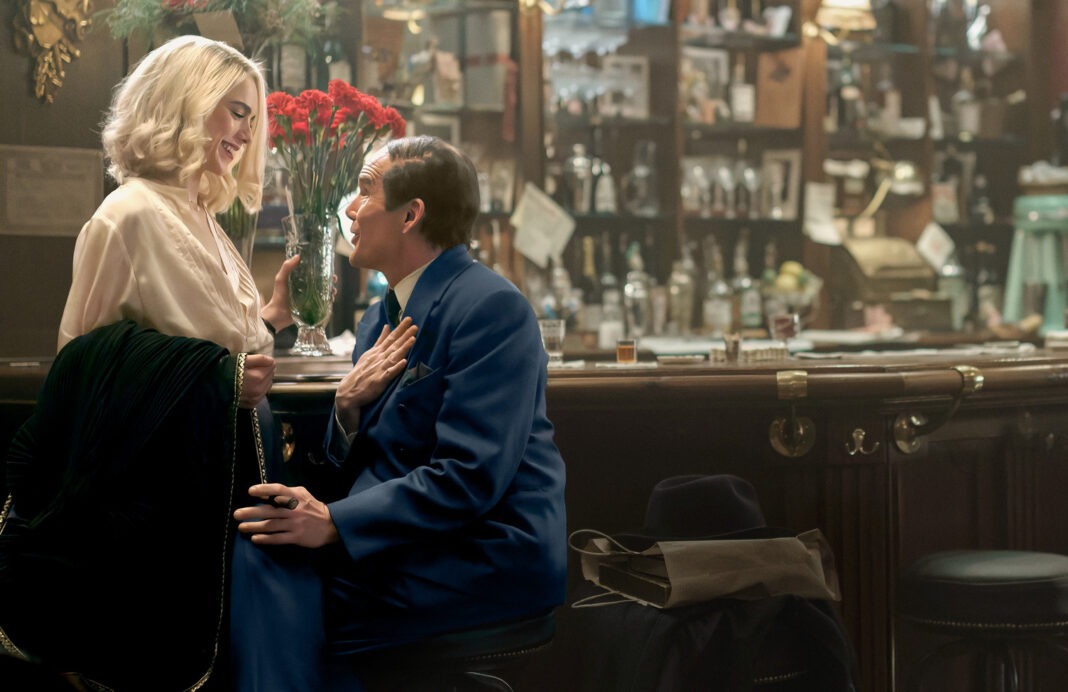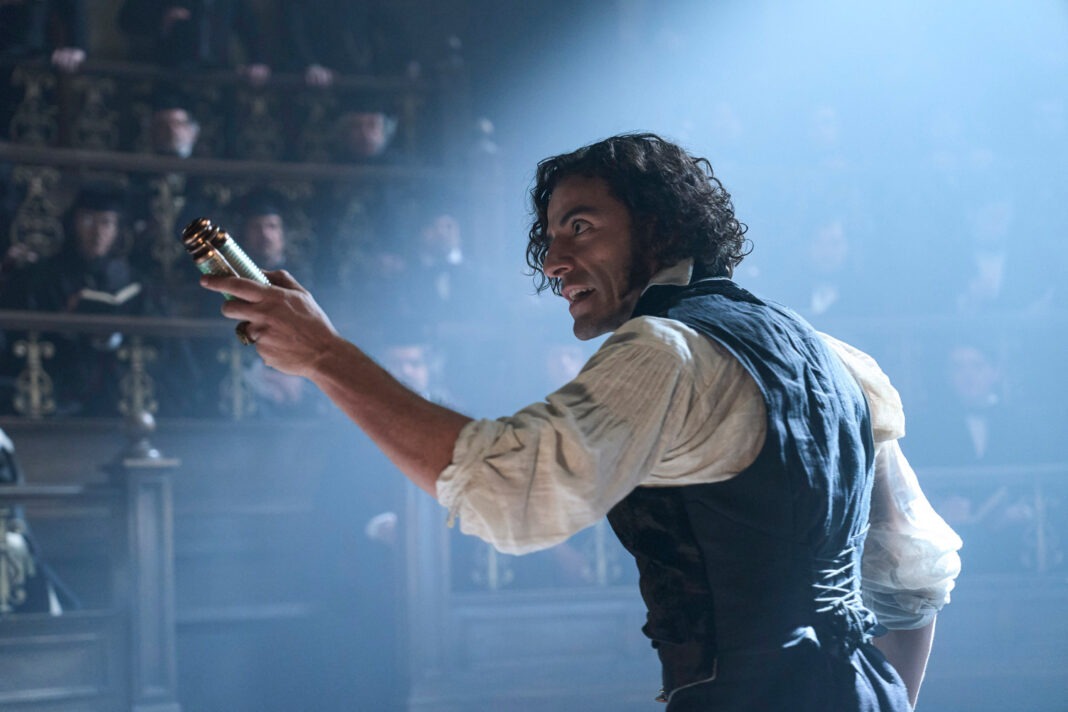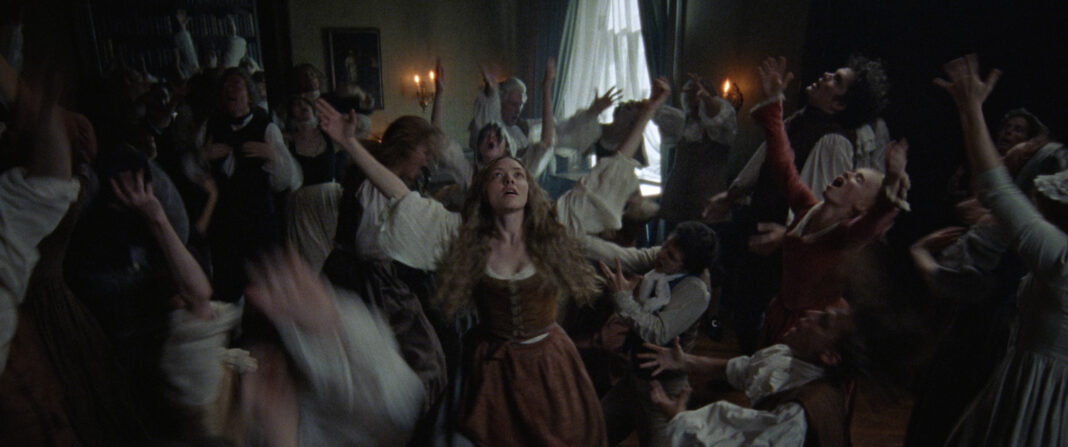Some people really love to hear themselves talk, and it can be exhausting. But if you’re willing to take the time to listen, someone going on and on can be quite informative, and indicate just as much about who they are as whatever it is they’re saying. It also serves as a perfect opportunity to get to know characters and see a picture of their lives during the short span of a movie. The best part about Blue Moon is that it lets its protagonist talk nearly the entire time, shedding tremendous light on who he was outside of this film’s one memorable night.
Lorenz Hart (Ethan Hawke) walks into a Sardi’s in New York City, where he’s greeted by bartender Eddie (Bobby Cannavale), who knows him well enough to point a gun at him and quote a favorite movie line of theirs. Lorenz has a lot to say because his writing partner of many years, Richard Rodgers (Andrew Scott), has just premiered the first musical he’s made without him, Oklahoma! Unsurprisingly, Lorenz has plenty to criticize about the show and also wants to regale Eddie, the young pianist, Morty (Jonah Lees), and fellow bar patron E.B. White (Patrick Kennedy) with stories about Elizabeth (Margaret Qualley), the twenty-year-old college student he can’t get out of his head who’s set to come by later that night.
For a film with so much dialogue that fills almost every moment, it’s especially jarring to learn that it’s all invented, pieced together from letters written between Lorenz and Elizabeth. Screenwriter Robert Kaplow, whose book Me and Orson Welles was previously adapted by Linklater into a film, has written a phenomenal vehicle for Hawke, who himself has worked with Linklater on some of the defining projects of his career, the Before Sunrise trilogy and Boyhood. It’s a demanding part which finds Hawke, as Lorenz, speaking nearly uninterrupted from the first frame of the film to the last, traveling a range of emotions as he only ever so briefly stops to hear what someone else has to say.
It’s possible that this could have been a play, but it works very well as a film. The bar setting isn’t merely a device but a logical destination for someone who likes to hear himself talk, as well as a gathering place for the team behind Oklahoma! on the evening of their big premiere, a coincidence surely deliberately contemplated by Lorenz as he puts himself in a position to be uncomfortable as his longtime collaborator’s first solo effort is showered with praise. The setting never feels formulaic or contrived and instead opens up the opportunity for some distinctly memorable conversations with a safe retreat available back by the bar as soon as each has run its course.
Hawke is prolific and has tried many genres, but he hasn’t done anything quite like this before. His voice is softer but also more pronounced, and Lorenz gives off an air of irritation about the world while not holding himself accountable for any role he has in it, except if he’s talking down about himself or his music, hoping someone will chime in to boost his ego. His ability to talk for so long is staggering in itself, and the few moments in which he’s not ranting are just as emphatic due to how much he communicates on his face. The great reluctant listeners include Cannavale and Scott, while Qualley delivers an extraordinary turn as Elizabeth, matching Lorenz’s chattiness but with a different outlook on life. It’s not a large part but it’s a delight to see this busy leading actress stopping in for worthwhile supporting contributions.
That Hawke is doing something different here and succeeding so well is the best possible argument for repeat collaborations between directors and performers. Kaplow’s script has a real rhythm, and Linklater’s direction makes it feel even smoother. While some may find Lorenz’s incessant talking grating, this film, which clocks in at a comfortable 100 minutes, does a good job of moderating him, allowing other characters to add something when it feels like audiences need a break. This film offers just a small glimpse of Hart but does present a resonant tribute to a man whose marvelous life and career were both cut short by his own insecurities and demons.
Movie Rating: 8/10



